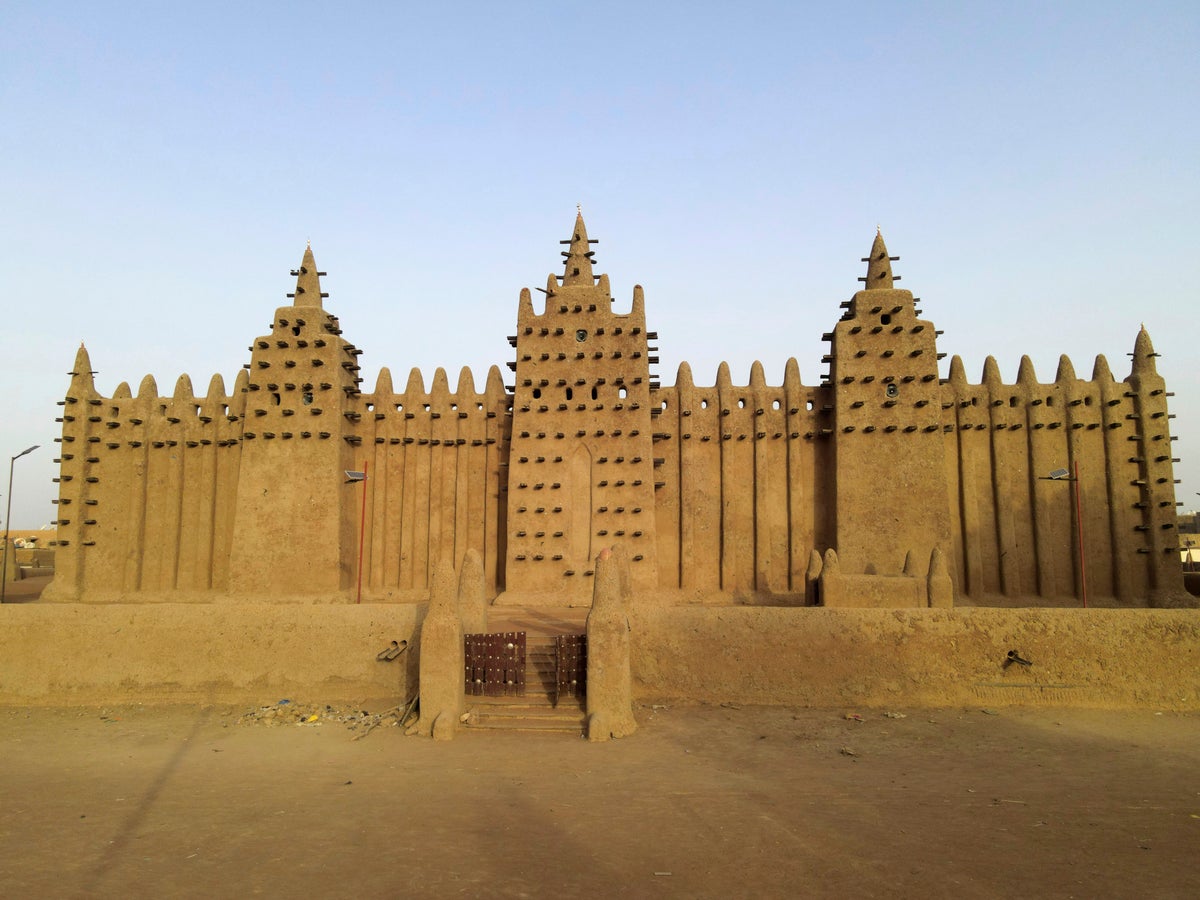
Kola Bah used to earn a living as a tour guide in Mali's historic city of Djenné, once a center of Islamic learning known for the sprawling mud-brick mosque that has been on the UNESCO World Heritage in Danger list since 2016.
The Grand Mosque of Djenné — the world’s largest mud-brick building — used to draw tens of thousands of tourists to central Mali every year. Now it's threatened by conflict between jihadi rebels, government forces and other groups.
Bah says his income was enough to support his family, which now numbers nine children, and to pay for a small herd of cattle. But these days, few visitors come to the city, and he has been largely out of work. When he needs cash, he sells some of his cattle.
Speaking to The Associated Press outside his home in Djenné's old town, Bah said locals believed the crisis would come to an end eventually, and that business would pick up as before.
“But the more time passed, the more this dream proved illusory,” he said. “Things are really difficult now.”
Djenné is one of the oldest towns in sub-Saharan Africa and served as a market center and an important link in the trans-Saharan gold trade. Almost 2,000 of its traditional houses still survive in the old town.
The Grand Mosque, built in 1907 on the site of an older mosque dating back to the 13th century, is re-plastered every year by local residents in a ritual that brings together the entire city. The towering, earth-colored structure requires a new layer of mud before the rainy season starts, or it would fall into disrepair.
Women are responsible for carrying water from the nearby river to mix with clay and rice hulls to make the mud used to plaster the mosque. Adding the new layer of mud is a job reserved for men. The joyful ritual is a source of pride for a city that has fallen on hard times, uniting people of all ages.
Bamouyi Trao Traoré, one of Djenné’s lead masons, says they work as a team from the very start. This year's replastering took place earlier this month.
“Each one of us goes to a certain spot to supervise,” he said. “This is how we do it until the whole thing is done. We organize ourselves, we supervise the younger ones.”
Mali’s conflict erupted following a coup in 2012 that created a power vacuum, allowing jihadi groups to seize control of key northern cities. A French-led military operation pushed them out of the urban centers the following year, but the success was short-lived.
The jihadis regrouped and launched relentless attacks on the Malian military, as well as the United Nations, French and regional forces in the country. The militants proclaimed allegiance to al-Qaida and the Islamic State group.
Sidi Keita, the director of Mali’s national tourism agency in the capital of Bamako, says the drop in tourism was sharp following the violence.
“It was really a popular destination," he said, describing tens of thousands of visitors a year and adding that today, tourists are “virtually absent from Mali.”.
Despite being one of Africa’s top gold producers, Mali ranks among the least developed nations in the world, with almost half of its 22 million people living below the national poverty line. With the tourism industry all but gone, there are ever fewer means for Malians to make a living.
Anger and frustration over what many Malians call “the crisis” is rising. The country also saw two more coups since 2020, during a wave of political instability in West and Central Africa.
Col. Assimi Goita, who took charge in Mali after a second coup in 2021, expelled French forces the following year, and turned to Russia’s mercenary units for security assistance. He also ordered the U.N. to ended its 10-year peacekeeping mission in Mali the following year.
Goita has promised to beat back the armed groups, but the U.N. and other analysts say the government is rapidly losing ground to militants. With Mali's dire economic situation getting worse, Goita's ruling junta ordered all political activities to stop last month, and the following day barred the media from reporting on political activities.
Moussa Moriba Diakité, head of Djenne’s cultural mission which strives to preserve the city’s heritage, said there are other challenges beyond security — including illegal excavations and trash disposal in the city.
The mission is trying to promote the message that security isn’t as bad is it seems, he said, and also get more young people involved in the replastering ritual, to help the new generation recognize its importance.
“It's not easy to get people to understand the benefits of preserving cultural heritage right away,” he said.







